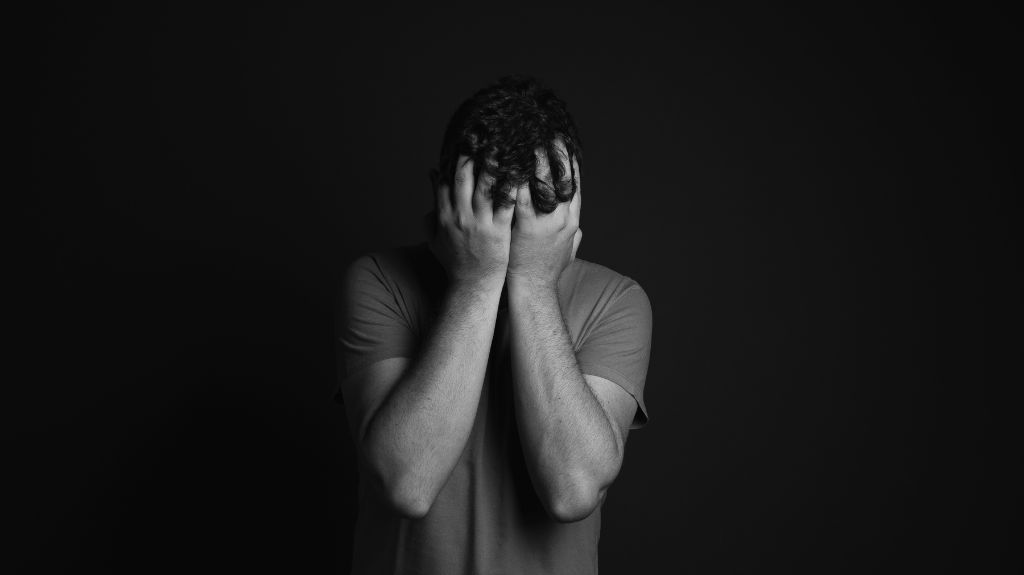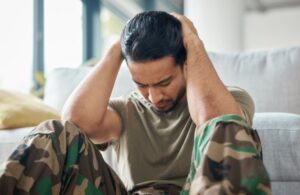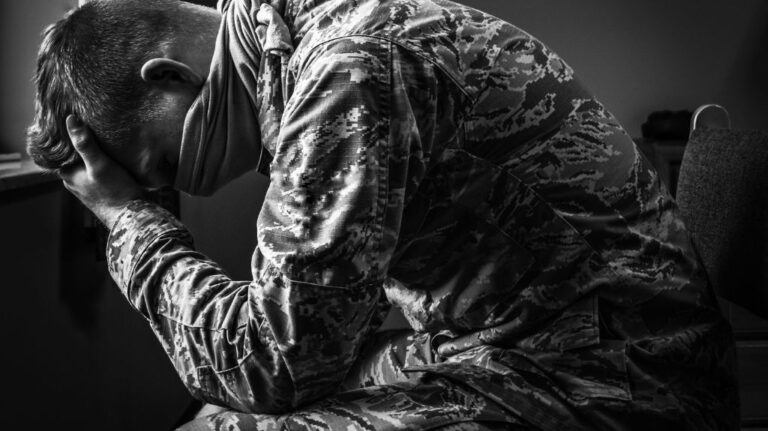Top 5 Symptoms of Depression for Veterans

Many veterans who return home continue to combat mental health conditions like Posttraumatic Stress Disorder (PTSD), depression, and anxiety — which can be claimed as a service-connected disability. Mental health conditions have become more and more prevalent among veterans and an estimated 1 in 3 veterans show symptoms of depression and 1 in 8 veterans experience more severe depression disorders that require treatment.
If you are a veteran who may be combating depression, or the family member of a veteran, you may not know what to look for when it comes to depression and we want to help you receive the care and benefits you need. To help you identify depression in yourself or your family members, we have created a list of the Top 5 Symptoms of Depression for Veterans.
What Are the Key Symptoms of Depression?
Depression — in its most extreme cases can be debilitating — and even minor cases of depression can impact your day-to-day life, from work to personal relationships. Recognition of the symptoms can help veterans get the treatment they need and receive disability compensation if the condition is connected to their military service. Veterans who need immediate help can contact the Veteran Suicide and Crisis Line by dialing 988 and Pressing 1 or by texting 838255.
Here are the key symptoms of depression:

1. Constant Feeling of Sadness
The initial symptom of depression may be the most prevalent and that is a constant feeling of sadness. This is not the same as a bad day, it is a constant and consistent mood of sadness, hopelessness, guilt, or despair that may feel inescapable and can last for long periods of time.
2. No Interest in Favorite Activities
Do you love to golf or go fishing? If your favorite activities or hobbies no longer provide the same feeling of joy, excitement, or relaxation as they used to, it may be a sign of depression. Veterans who notice that they no longer get any joy from their favorite activities may be fighting depression and should speak with a mental health professional.
3. Loss of Sleep or Appetite
Do you struggle to sleep at night? Have you lost your appetite and lost weight? Insomnia, hyperinsomnia, and a loss of appetite can all be indicators of depression and may mean it is time to speak with a doctor or healthcare provider. In addition — sleeping too much can be another symptom of depression.
4. Fatigue and Lack of Energy
Do you sleep a full eight hours and still wake up tired and fatigued with no energy? Mental health conditions can be physically draining and if you experience constant fatigue, have no energy, and feel drained all the time, you may be combating depression.
5. Consistent Thoughts of Death and Suicide
Depression can lead to dangerous thoughts of death and suicide that if not noticed and acted on quickly, can lead to tragedy. Veterans who have consistent thoughts about death or suicide need to seek immediate help from a qualified healthcare professional or trusted friend.
READ MORE: How Does the VA Rate Depression?
Are you concerned that you may have depression as a veteran? Are you concerned about the mental health of a veteran you know? This list of Top 5 Symptoms of Depression for Veterans may help you see the signs earlier and get the help that you need. Contact VA Benefits Attorneys Powered by Tabak Law today for help with your VA disability claim!



